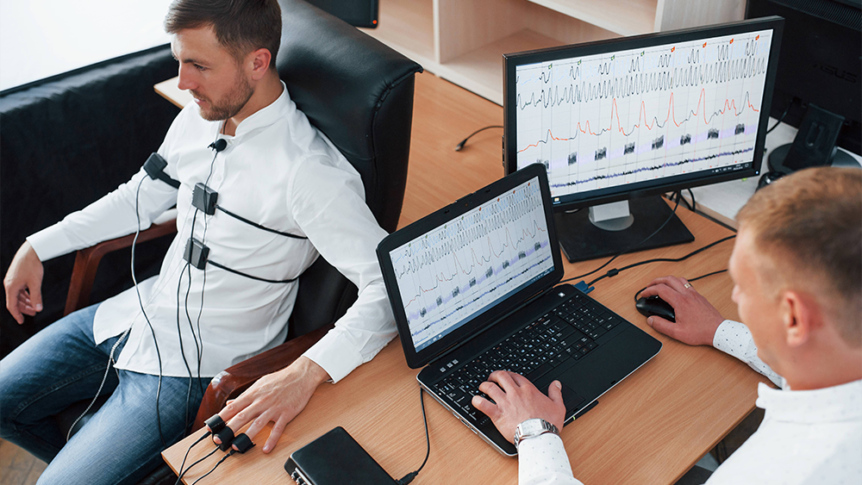Lie detector tests, also known as polygraph tests, have long been a subject of fascination and controversy. Used in various scenarios from personal use to employment screenings, their accuracy and reliability remain topics of debate. In the UK, where their use is not as widespread as in some other countries, understanding the effectiveness of lie detector tests is crucial for both legal professionals and the general public.
What is a Lie Detector Test?
A lie detector test measures physiological responses such as blood pressure, pulse, respiration, and skin conductivity while a person answers a series of questions. The premise is that deceptive answers will produce physiological responses that can be differentiated from those associated with truthful answers.
History and Development
The polygraph was invented in the early 20th century and has undergone various modifications over the years. In the UK, its use has been primarily limited to specific areas, such as counter-terrorism and sex offender management, rather than general criminal investigation.
How Do Lie Detector Tests Work?
During a polygraph test, sensors are attached to the body of the person being tested. These sensors record the body’s physical responses to questions. A trained polygraph examiner then interprets these responses. The test usually involves three phases: a pre-test interview, the collection of physiological data during the questioning phase, and the post-test data analysis.
Explore: How Do Lie Detectors Work?
Types of Questions
Questions in a polygraph test are designed to elicit a psychological response. They are typically categorised as relevant (pertaining directly to the matter under investigation), irrelevant (unrelated to the subject), and control questions (related to the subject but less direct).
Accuracy of Lie Detector Tests
The accuracy of lie detector tests is a contentious issue. Proponents argue that when administered by a trained professional, polygraph tests can have an accuracy rate of over 90%. However, critics point out several limitations.
Factors Influencing Accuracy
Examiner Skill:
The ability of the examiner plays a crucial role in the accuracy of a polygraph test.
Subject’s Physical and Psychological State:
Factors such as nervousness, anxiety, or certain medical conditions can affect the results.
Quality of Equipment:
The precision of the polygraph machine itself impacts the test’s reliability.
Scientific Basis:
Many studies have explored the scientific basis of polygraph tests. Some research suggests that while they are more accurate than chance, they are far from infallible. The American Psychological Association, for instance, notes that lie detectors can be tricked.
Legal Status in the UK
In the UK, polygraph tests are not widely accepted in court. The results are generally considered inadmissible as evidence, primarily due to questions about their reliability.
Applications in the UK
Despite the controversy, polygraph tests are used in certain contexts within the UK. They are utilised in managing sex offenders and have been considered in counter-terrorism contexts. Their use in these areas is predicated on the belief that they can act as a deterrent and a tool for monitoring compliance with legal requirements.
Employment Screening
In the UK, the use of lie detectors for employment screening is not common. Employers are generally more reliant on background checks and interviews.
Criticisms and Limitations
The main criticisms of lie detector tests focus on their potential for false positives (identifying truthful individuals as lying) and false negatives (failing to detect lies from deceptive individuals). There are also ethical concerns regarding the stress they can cause to individuals, especially if the results are inaccurate.
Conclusion
In conclusion, while lie detector tests such as those offered by Global Polygraph Solutions provide valuable insights, their use should be approached with caution due to inherent limitations in accuracy. As the field evolves, Global Polygraph Solutions remains committed to enhancing the effectiveness and ethical standards of these tests, ensuring a balanced approach in the future of deception detection.
FAQs:
What is a lie detector test?
A lie detector test, or polygraph, measures physiological responses to assess if a person is lying or being truthful. It’s based on the premise that lying induces distinct physical changes.
How accurate are lie detector tests?
The accuracy of lie detector tests is controversial, with factors like examiner skill and individual stress affecting the results. Their reliability is often questioned.
What impacts lie detector test accuracy?
Accuracy is influenced by the examiner’s competence, the subject’s stress level, countermeasures used, and individual physiological differences.
Are there alternatives to lie detector tests?
Yes, alternatives include cognitive interview techniques, statement analysis, and behavioural analysis, which are more reliable and scientifically supported.
Are lie detector tests used in UK employment screening?
They are not commonly used in UK employment due to legal and ethical reasons, being more prevalent in specific investigative or legal situations.
Do lie detector tests work for everyone?
Their effectiveness varies among individuals due to differing physiological responses to deception.
Can I request a lie detector test in legal matters?
While you can request one, its acceptance and impact depend on the jurisdiction and specific legal context. Legal advice is recommended in such cases.

